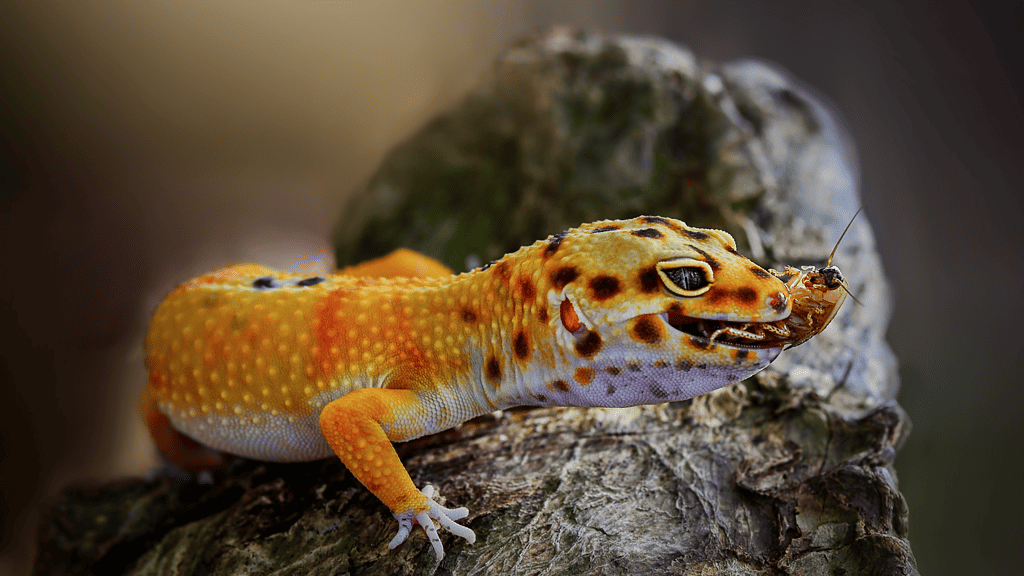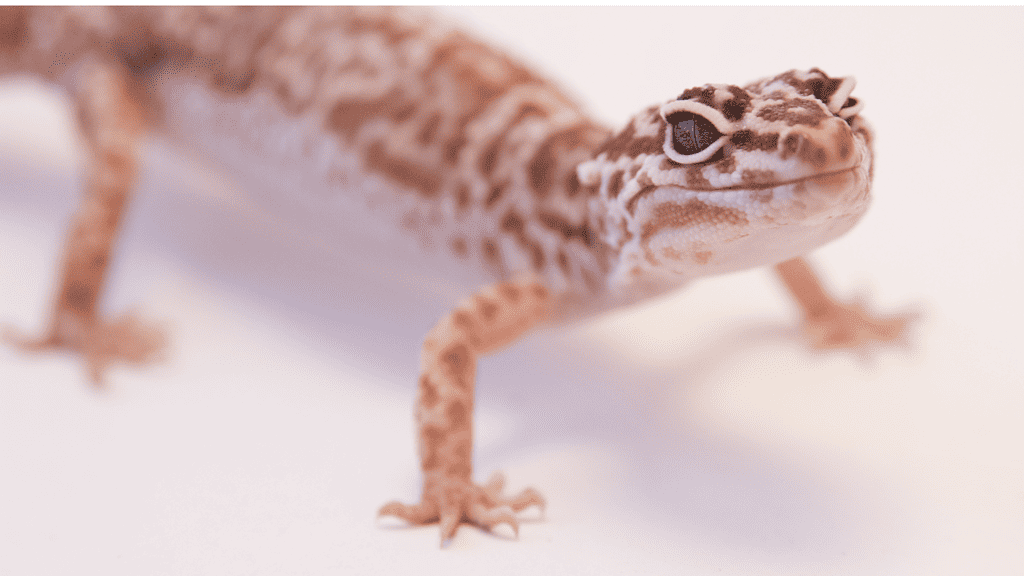When it comes to Leopard Geckos (Leos), hearing can be a very important sense. Hearing can be vital for seeing predators, hunting prey, or determining if the habitat is safe for growing young. In this way, hearing is a survival mechanism. But despite all these, are Leopard Geckos sensitive to sound?

Leopard geckos have highly advanced hearing built for survival to help detect predators and the location of prey at night. Because of this, leopard geckos are extremely sensitive to loud sounds such as construction, music, or the barking of dogs.
Fact: Leopard geckos are generally sensitive to loud sounds; however, this trait might vary from individual to individual.
Introduction to Sound
In order to provide you with a foundational knowledge of sound, you will need some information on the components that make up sounds. These components include:
- Frequency (pitch): the frequency of a sound, measured in hertz, defines whether or not a sound is high or low (Hz). A sound above 2000 hertz is of high frequency (or 2kHz). Sounds with a frequency of 500 hertz or below are considered to be low-frequency sounds.
- Volume (loudness): the sound’s intensity, measured in decibels, decides whether or not a sound is loud or quiet (dB). A sound with high intensity is loud, whereas a sound with low intensity is regarded as soft.
Sounds & Leopard Geckos
When determining which sounds are dangerous for leopard geckos and which others should be OK, it is always vital to analyze the strength, length, and noise. This is because leopard geckos are sensitive to changes in their environment.
If you play loud music close to your leopard gecko’s vivarium, it may induce stress. However, if you have one night of loud music on the opposite end of your house from the leopard gecko’s tank, there is a good chance that your leopard gecko will be fine.
Are the Ears of Leopard Geckos Very Sensitive?
Even though leopard geckos don’t need their hearing to live in captivity, they all have very good hearing.
Loud sounds, especially ones that come out of nowhere, can be scary and disturbing for a leopard gecko. For example, music from a sound system is often much louder than what these lizards are used to hearing, making them very nervous.
However, there are some sounds that they can tolerate. It is known that leopard geckos respond favorably to the sound of their owner’s voice and that they find nature sounds to be highly calming.
Your leopard gecko can identify your voice from across the room because of how sensitive their hearing is. This may help cheer them up and strengthen the link that you share.
Significant Functions of Sound Sensitivity in Geckos
Geckos have a unique hearing to help them survive in their ecological surroundings. They have various benefits due to the sensitivity of their hearing. Unsurprisingly, several of these factors are also connected to the fact that they make unique vocalizations.
Avoiding Predators
Geckos rely significantly on their hearing to evade predators and not have to lower their tails to escape. Geckos can use sound vibrations in the air and on the ground to figure out where larger carnivorous animals are and what direction they might go to get there.
Once they are aware of these things, they can choose to either hide by burrowing into the ground or climb up shrubs and trees to avoid being seen by their enemies who are hungry for their flesh.
Detecting Preys
Because of their heightened sensitivity to sound, geckos can identify and capture their prey even when these insects are hidden in small cracks and hollowed-out decaying tree trunks.
Even though it is only the second most important sense that geckos use to find insects in the wild and captivity, it is still a very important part of how they eat. Geckos with hearing problems have a reduced chance of successfully capturing their prey.
Some gecko species have night vision, but their highly developed hearing allows them to identify live feeder insects in low-light or dark regions.
Finding Mates
Geckos need to hear very well, of course, because they need to locate suitable partners before the beginning of the breeding season. This is especially true for our cherished small geckos with delicate bodies, who produce mating sounds that are only a few seconds long but are quite gentle.
In the wild or in captivity, most geckos live alone. Therefore, they require a highly developed sense of hearing to determine whether or not a potential mate is within their grasp.
Determining Territories
Most keepers and breeders know how territorial geckos can be; thus, they advise against cohabitating them, even if they are of the opposite sex.
In the wild, a huge mature male gecko must guard his area. This kind of gecko will frequently make a loud noise to assert its ownership of the territory and warn other geckos not to intrude on the land unless they are prepared to engage in a territorial battle.
On the other hand, a young gecko, regardless of whether this is due to its species or its age, will likely wish to avoid being around any adults that are hostile toward them.

Is Loud Sound Harmful to Leopard Geckos?
If there are loud noises close to your leopard gecko’s tank or home, it can be stressful for the gecko. But usually, this will need to be a loud noise that happens all the time. So, you shouldn’t worry if you drop a noisy pan on the floor or if you are in the middle of a loud storm.
Also, the leopard gecko’s vivarium probably does an excellent job of already blocking out too much noise. Unless you have an open tank, the vivarium should mask most sounds.
However, your leopard gecko may become stressed if there are an excessive number of loud noises or if there is constant loud noise. It can change their behavior, make them more irritated, and reduce the likelihood that they will interact with you.
Therefore, leopard geckos should be kept away from extremely loud sounds, but it is ultimately your responsibility to observe their behavior and ensure that they do not appear to be stressed.
